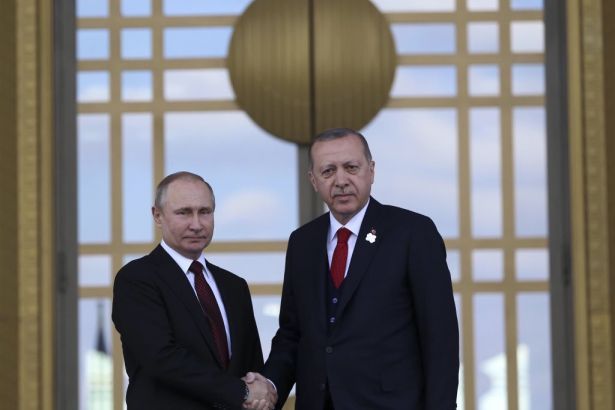Backstage of Akkuyu nuclear plant: What did Putin mean?

Russian Head of State Vladimir Putin talked at the ground-breaking ceremony of Turkey’s first nuclear power plant in Akkuyu, Mersin, and underlined two matters – one “strategic”, one “economic”. Putin pointed to Turkey acquiring “nuclear capacity” by the help of Russia in the “strategic” aspect while, in the “economic” aspect, he emphasised the economic operating volume that would emerge, particularly the construction of the nuclear plant.
TURKEY’S “STRATEGIC DEPENDENCE” ON RUSSIA DEEPENS
Stating that “We are creating a new sector in Turkey”, Putin added that the new nuclear plant will “lay the foundation for the atomic industry”. The emphasis on Turkey acquiring a “nuclear capacity” embodies a significant strategic consideration regarding Russian-Turkish relations. When the relations were tensed following the warplane crisis in 2015, when Turkey shot down a Russian jet, Turkey’s “energy raw material dependence” on Russia was prominently felt.
Russia had ceased the imports from Turkey, the number of Russian tourists in Turkey had nearly dropped to zero, and hence Turkey had faced billions of dollars of lost revenue. In response to sanctions, Turkey had been able to do almost nothing about the importation of natural gas, crude oil, and coal, which are its main imported items. While it didn’t have any right to sanction in respect of natural gas due to long-term contracts and pipelines, there weren’t major downturns in crude oil and coal again because of commercial advantages.
The main shareholder of the nuclear plant being a Russian company doesn’t only mean a quantitative and qualitative growth in the energy dependence. It also generates a very long-term investment, as well as a strong dependence in the disposition of the “nuclear capacity”.
Considering Russia’s activity and role in the region, notably in Syria, it is possible to foresee that the constriction caused by the imperialist balances will increase further with respect to the Turkish capitalism. Although the recent ground-breaking ceremony was deemed a rather comforting step by the Turkish government...
THOUSANDS OF TONS OF CONCRETE IN “ECONOMIC BENEFIT”
Furthermore, Putin, who thanked for a status of “strategic investment” being granted, remarked that the new nuclear power plant “will provide economic benefit”. The employment, material production, and support activities, which the construction of the power plant will create, reach a significant magnitude. However, it is estimated that 50-60 percent of the investment amount, which was announced to be 20-22 billion dollars, will be spent for the reactors and related works as 40 percent will be allocated to the construction works.
While the reactors and related works will be done with the materials and technical equipment imported from Russia, the remaining share of 7-8 billion whets the appetite of contractors. The amount calculated just for the concrete to be used is around 5 million tons, which corresponds to 2 million tons of cement. An annual amount of 400-500 thousand tons of cement excites the regional cement sellers such as Oyak and Sabancı.
Another consequence is that the technical specification of the materials, including concrete, being high-grade will cause the construction technology to be heavily utilised, and hence thousands of workers to be employed during the peak period of the construction. However, the claim made at the kick-off ceremony that the construction of the nuclear plant will gain the Turkish economy 7-8 billion dollars of added value seems rather controversial. It is merely possible to gain 20-25 percent of the promised added value from the construction works.
After its start-up, the nuclear plant is expected to supply 6 percent of the electricity production. When calculating the added value including the benefit gained from the import of energy raw materials and considering the cost of 20-22 billion dollars of investment together with the financing, we can envisage that the mentioned added value won’t be achieved in the initial 10-15 year.
Aside from the discussions on the use of nuclear energy, it is seen that a highly strategic investment not being directly publicly funded raises political and economic costs.




